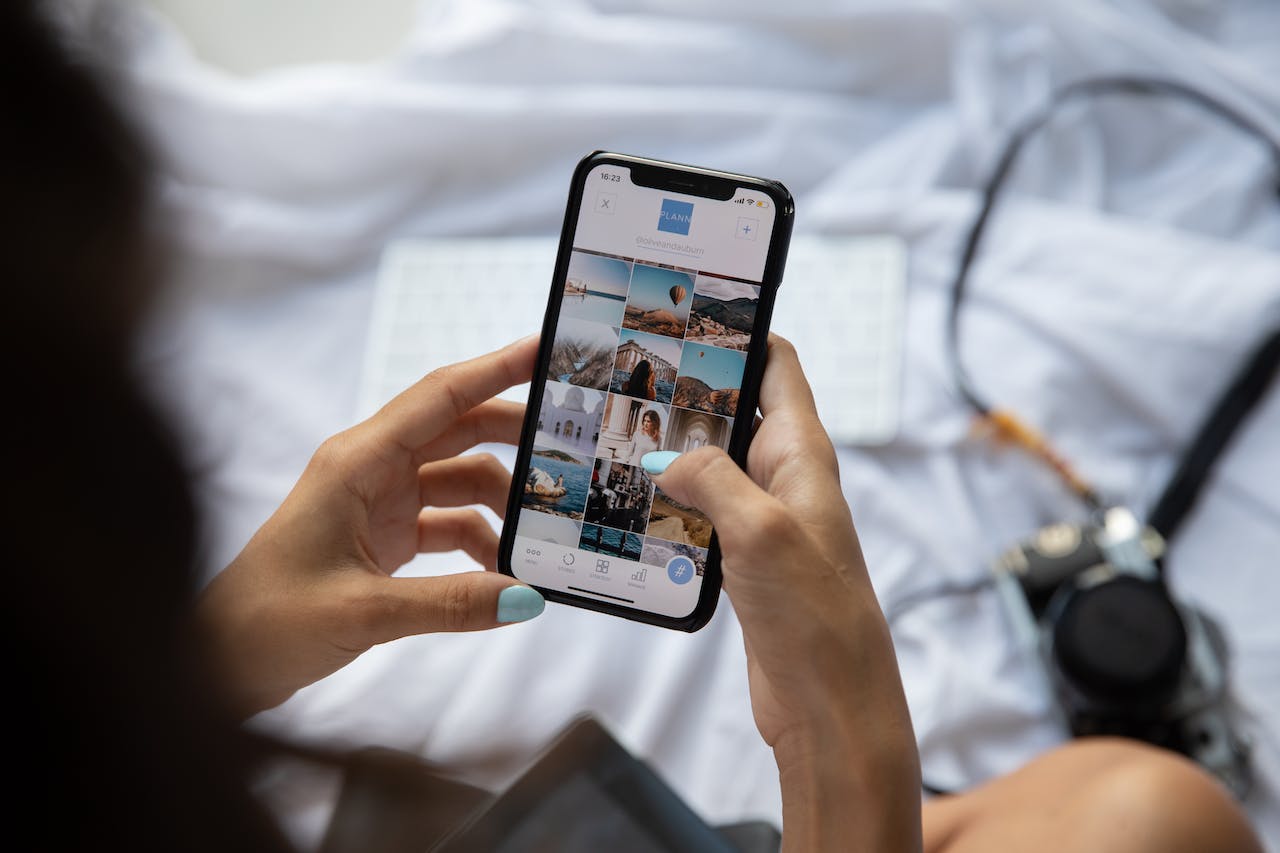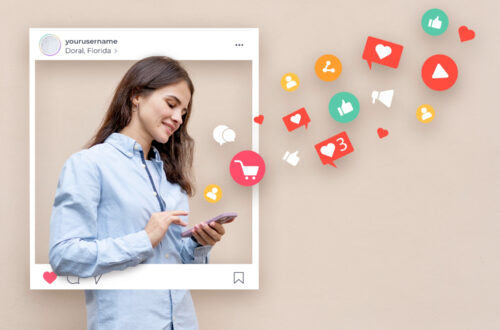Influencer marketing has become an essential part of promoting SaaS products. SaaS marketing companies can quickly expand their reach and establish credibility by partnering with industry experts with strong followings.
The key is identifying influencers who are a natural fit for your brand. Look for influencers who are respected in your niche and already discuss topics relevant to your SaaS offering. Make sure they have an audience demographic that matches your ideal customer profile.
Once you’ve found the right influencers, it’s time to build relationships. Provide value by sharing unique insights and information before ever pitching a partnership. When you propose working together, ensure both sides understand expectations and responsibilities clearly. Successful collaborations require effort from both the SaaS brand and the influencer.
Leveraging influencers provides unparalleled opportunities for SaaS companies to boost awareness and drive conversions. With the right partnerships, influencer marketing can be an impactful addition to any SaaS marketing strategy. This guide will explore how SaaS brands can leverage influencers to boost exposure and drive growth.
What is Influencer Marketing?

Influencer marketing uses social media influencers to make more people aware of and interested in your product or service. You must choose the right influencers for your product to do it well and develop a plan for your audience and what you want to achieve.
Types of Influencers
There are several major types of influencers that brands can leverage for promotions:
- Macro-Influencers: Also known as celebrity influencers. These are major public figures with hundreds of thousands or millions of followers. They have the largest reach but are more expensive and may have less expertise in a niche.
- Micro-Influencers: Everyday experts in their field with typically 1,000 to 100,000 engaged followers. They have strong expertise and engagement in a niche. More affordable and accessible for brands.
- Nano-Influencers: Extremely niche with less than 1,000 followers. Their small but targeted audience allows for high engagement rates. Very accessible for brands on a budget.
- Brand Advocates: Loyal customers who authentically share about products they love. Their genuine passion drives word-of-mouth marketing.
- Employee Advocates: A brand’s staff who promote products on social media. They add an internal perspective.
The ideal influencer match will depend on a brand’s goals, target audience, and budget. A strategic approach often involves a mix of influencer types to achieve awareness among a wide audience while driving authentic engagement in a niche.
Does Influencer Marketing Work for B2B SaaS?
While influencer marketing took off in B2C, it is gaining traction among B2B SaaS marketing brands. However, there are some key factors to consider when applying influencer marketing strategies to a B2B context:
- B2B buyers are highly rational. They focus on functionality, ROI, and service – not emotions. The hard sell tone common in B2C often falls flat.
- B2B purchases involve more complex decision-making and longer sales cycles. Influencers can’t drive instant conversions in a B2C context.
- Compliance is critical. B2B partnerships require extensive legal vetting.
- Niche relevance is key. Micro-influencers with deep industry expertise resonate more than broad influencers.
Despite these challenges, influencer marketing can still be highly effective for B2B SaaS with the right approach:
- Position influencers as impartial industry experts who validate your solution. This boosts credibility.
- Focus on niche influencers with real experience using your product. Their endorsement brings authenticity.
- Don’t sell outright. Influencers should focus on providing value and education.
- Aim for long-term partnerships that build trust over time.
Influencer marketing requires adjustments for B2B but can still drive brand awareness, trust, and eventual sales when executed strategically. The key is choosing relevant partners who genuinely know and recommend your SaaS. Their stamp of approval provides social proof that sways B2B buyers.
What are the Distinguishing Features of SaaS Influencer Marketing?

Influencer marketing has become an invaluable growth lever for SaaS marketing companies looking to cut through the noise and connect with targeted B2B audiences. However, promoting B2B software requires a different approach from typical B2C influencer programs. Several key factors make executing influencer campaigns for SaaS unique:
Complex Products and Services
SaaS products have intricate functionality, extensive features, and a steep learning curve. Influencers need ample time to understand the key use cases and benefits to speak knowledgeably. They may require extensive technical training and guides.
Lengthy Sales Cycles
Big SaaS deals often involve multiple stakeholders and take months to close. Influencers can start the journey by driving awareness and interest. However, partnerships should be long-term to nurture prospects over the entire buyer’s journey.
Educational Approach
Influencers must position themselves as trusted advisors rather than salespeople. Content should focus on teaching audiences how SaaS marketing solves real business problems. Case studies and ROI stats resonate more than hype.
Demonstrable ROI
B2B buyers demand quantifiable proof of value. Influencer content should spotlight data-driven ROI through metrics like increased productivity, cost savings, faster processes, and improved customer retention.
B2B Buyer Psychology
Influencers must adjust their tone, topics, and tactics to align with B2B buyer motivations, pain points, and objections. Customer personas and journeys differ greatly from B2C contexts.
Long-Term Relationships
One-off influencer partnerships have minimal impact. Consistent, ongoing collaborations that build authority over months and years perform better. This nurtures audiences through lengthy sales funnels.
Niche Industry Expertise
Macro influencers drive general awareness, but credible recommendations require deep domain knowledge. Identifying micro-influencers with niche expertise should be the priority.
By tailoring strategies around these unique SaaS influencer marketing considerations, brands can maximize their partnerships’ impact on complex B2B deals.
Where Should You Search For the Right Influencers for Your SaaS Brand?

Tapping into influencer marketing requires identifying and vetting partners who truly fit your niche and can authentically resonate with your audience. Here are some proven tactics for SaaS marketing that brands can leverage:
Network at Industry Events
- Attend relevant SaaS and tech conferences, meetups, webinars, and trade shows. Interact face-to-face with influencers and experts in your space.
- During conversations, gauge their knowledge, interest, and overall fit for a partnership.
- Follow up post-event to continue the relationship and eventually propose working together.
Leverage Employee Contacts
- Survey your staff on which influencers they follow in your niche. Your employees likely already engage with relevant creators.
- Have your team make warm introductions to influencers they have existing relationships.
- An internal referral goes a long way when vetting and onboarding influencers.
Search Social Platforms and Blogs
- Use hashtag targeting and keyword searches to identify influencers actively posting about your SaaS niche.
- Vet their expertise, topics covered, engagement levels, creativity, and audience.
- Social listening reveals plenty of data to gauge their potential fit.
Participate in Industry Forums
- Take part in relevant communities like Reddit, Quora, LinkedIn groups, etc.
- Identify influencers who post quality responses and engage in dialogues.
- Reach out to collaborate with influencers active in your category.
Utilize Analytics Tools
- Use software to identify influencers by tracking relevant keywords, hashtags, and mentions of your brand and competitors.
- Uncover content creators your audience is already engaging with.
- Tools provide data on engagement levels to gauge reach.
Partner with an Agency
- Influencer marketing agencies in India have enormous databases and connections to match you with niche-relevant influencers.
- They handle vetting, relationship building, and campaign management.
- The experience and resources of agencies de-risk the process.
Survey Existing Customers
- Customers can provide insights on content creators who have been helpful to them.
- Ask customers which influencers they follow in the SaaS space.
- This identifies influencers your audience already trusts.
SaaS Companies Use Influencer Marketing in Diverse Manners
Some examples of Indian SaaS companies that have effectively leveraged influencer marketing:
- Zoho: This business software suite works with top Indian business leaders and entrepreneurs like Kunal Shah to actively showcase Zoho products and discuss technology’s role in organizations.
- Freshworks: The customer engagement software collaborates with Indian micro-influencers and subject matter experts to create educational content around sales, marketing, and support topics.
- Chargebee: For this subscription billing portal, Indian fintech experts and B2B thought leaders provide video testimonials and blog reviews focused on the product’s key features.
- Postman: This API development platform partners with Indian software developers and engineering influencers to demonstrate using Postman for testing and building APIs.
- BrowserStack: The mobile app testing SaaS activates customers as brand advocates, having them create video and blog reviews about their experience using BrowserStack.
- Wingify: The conversion optimization company partners with digital marketing influencers and growth hackers in India to explain how their VWO tool drives results.
- Freshdesk: This customer support software engages Indian micro-influencers who work in customer service roles to create educational content around best practices.
The key for these companies is collaborating with influencers who can speak credibly about use cases in the Indian market. Their niche expertise drives authenticity and engagement.
Conclusion
Influencer marketing can be a game-changing tactic for SaaS marketing and SaaS companies looking to extend their reach and engage with targeted B2B audiences. By strategically partnering with industry experts with strong followings and expertise, SaaS brands can tap into new communities ripe for conversion.
However, executing an influencer program for B2B SaaS requires adjustments from typical B2C campaigns. From lengthy sales cycles to niche micro-influencers to an educational focus, SaaS influencer strategies must be tailored to complex purchasing journeys. These partnerships provide invaluable social proof and establish thought leadership when done right.
FAQs
What types of influencers work best for promoting SaaS marketing?
Micro-influencers and niche experts with deep industry knowledge resonate more than broad macro-influencers. Look for those with highly targeted, engaged audiences.
How can SaaS brands identify and connect with the right influencers?
Utilize social listening, industry events, employee contacts, agencies, and analytics tools to find creators producing high-quality content about your niche.
What makes B2B SaaS influencer marketing different than B2C?
B2B demands more educational content focused on ROI, longer-term partnerships, and influencers with genuine expertise versus popularity alone.
What should a SaaS influencer marketing campaign focus on?
Rather than hard sells, provide value by showcasing how your product solves business challenges. Take an informative, thought leadership approach.
How do you measure the success of SaaS influencer programs?
Track engagement, conversions, lead generation, traffic, and brand lift surveys to quantify the impact. Adjust strategies accordingly.





